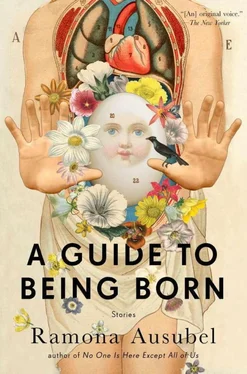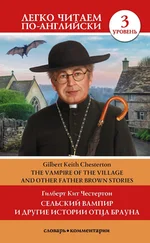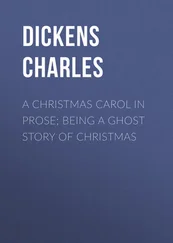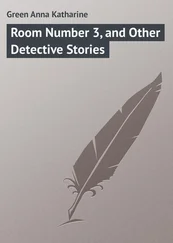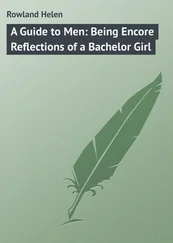But the fingers were unknown and, he checked, ringless. He carefully moved the hand away, placing it on top of its outstretched twin. He extracted himself from the circle and went to the podium, where he held the African filmologist in his own arms and began to talk quietly into the microphone.
“I have been weeding around the Johnny-jump-ups and watering the apricot tree. Yesterday the poppies were looking droopy, so I gave them extra water and they perked right up. It was amazing how quickly they reacted. Remember how the upstairs toilet was starting to leak? I think it’s finally time to replace it. I went to the store last weekend, but I couldn’t decide what to buy. I needed your help. All toilets are ugly and all toilets have the same gross function and I don’t know how to prefer one over another. You would have had a much less emotional reaction to this problem. I also wish you had been there to harvest the basil. And I’ve been reading Chekhov, whom I know you love. Food and books and shit, I guess that’s what you’re missing.”
If anyone was awake, they did not make a sound. Faustus said, “I’m not making a very good argument for your return. I promise that if you were here, I would not make you go to the hardware store. If you were here, I would set you up in the yard with a blanket and a glass of iced tea to watch the hummingbirds hover over the sweet syrup in the feeder. You would never have to move if you didn’t want to.” He looked at his left hand, the ring around and around his finger.
“Petra, people tell me I will ‘move on’ and I can’t believe it. But if it does ever happen, and I forget to feel this pressing absence of you, if I make it through a meaningless party and don’t remember to hate everyone for their peaceful lives until the morning, please know that I am already sorry. I am going to try to be brave like you asked me to, but I don’t have any idea yet what that means. Is it braver to allow the sadness of your leaving to spread into each of my bones until it is as big as you were to me? Or is it braver to let you drift out into what may very well be a brighter, finer place than this and be happy to think of your joy there? I hope, Petra, that I get it right.”
He hung the filmologist back over the podium like a drying suit. Faustus did not return to the monochromatic woman and her exploring hand. And he did not leave or try to leave. He was glad to be able to fall asleep shrouded by the breath of so many others, and he did so curled up under the dessert table.
• • •
HOURS LATER, with arms draped over other arms and heads nested in the smalls of unfamiliar backs, the professors began to awaken. They made small noises and licked their dry lips. There was no light to see where they were, or who they were lying on. They were hungry. They began to freak out.
“Darkness!” someone yelled.
“Who am I?” one philosopher shouted. The professors climbed over one another like blind worms. They clawed at their own faces in dramatic fashion. For some, this was very satisfying. They felt that they might have a story to tell, a story of insanity and confusion, of terror and, they hoped, of survival. There was a certain disappointment when the buzzing of the fluorescent lights came on and all their wrinkles and mussed hair was revealed in one startling moment.
They looked around and realized with some sadness that they were not refugees or prisoners of war locked in a shabby cell someplace in Africa after having been arrested for their daring, dangerous thoughts. They were not forgotten miners trapped in the coal-black darkness of a tunnel in Kentucky. They were not persecuted intellectuals in a country that valued only hockey and civil war. The professors recognized the school logo on the coffee urns and on the podium. They recognized the nicely reupholstered seats. They recognized one another. Those who had kissed regretted it. Those who had spooned on the floor regretted it less, but still felt some embarrassment, particularly if they had been the Baby Spoon, and the Mama Spoon had been from their own department.
Suddenly, the undergraduate opened the big double door to the outside. The world had been right there, four small inches of squeaky metal away. The professors spilled out into the light. They imagined violin music getting louder as they exited, their arms raised over their heads, praising salvation and daylight. Around them, students were on their way to class. Some even recognized teachers they had had. Teachers whose hair was sticking up all over. Some of whom had their shirts one button off.
Faustus came back awake to the sound of the freed men and women. He was lying on his shirt, his uneaten cookie crushed in his breast pocket. A huge river of light washed into the room, whiting everything out for Faustus, whose eyes had gotten used to dimness.
THE GIRLS ARE WORMED OUT across the floor under down comforters even though daytime is hardly over, trying to get a jump-start on the slumber party. “My parents both have perfect love-arms,” Genevieve tells her friends. “Both of them can write. They write love letters to each other. It’s almost sick.” No one thinks this is sick. Everyone wants this. Pheenie, Marybeth, Sara P. and Sara T. all want to have the proof.
Though the girls know many two-armers, even some who seem happy and in love, what they talk about are those with love-grown arms. “My mom doesn’t have anything and my dad just has fingers growing out of his chest. He can’t control them and they grab at anything that is close enough,” says Pheenie.
“My grandmother has seven, but she was always married to my grandfather. She says she fell in love with him over and over,” Sarah T. adds. Seven is an unusual number. Two sometimes, maybe three, but past that something important must have gone wrong. And still, the girls are greeted every morning by the television news anchors, their teeth white, their hair unyielding and their single, perfect love-grown arms, offering no hint of uncertainty.
Sarah P. lowers her head. “My dad’s arm keeps growing. It drags on the floor. It is soft and he can wrap it up and tie it in a knot.”
Genevieve, putting her hand on Sarah P.’s sleeping-bag-burrowed body, says, “I wonder what mine will be like. I want to have two. I think it’s better to fall in love twice, once to try it out and twice to know for sure. I want the first arm to be a stump and the second to be full grown.”
“I only want one. I only want one perfect one.” Pheenie shakes her head.
The girls go quiet and all the arms of all the loves they do not have yet beat silent beneath their skin. They thump and prepare.
• • •
AFTER ALL THE STUDENTS save the detentioners have left the building for the weekend, Principal Kevin again tells the story of his love. His wife’s beauty surpasses the Louvre, the Sistine. Both his secretaries chirp. They wide-eye his love-grown arm and tilt their heads and wish for what he has.
“You might not know what it feels like, but I do,” he tells them, “and it’s terrific .”
In fact, Principal Kevin stuffs his third sleeve. He stuffs it, but no one at school knows he does. The sleeve is filled with a prosthetic, a real fake arm commissioned from the lab at the hospital. It screws onto a threaded metal disc implanted on his chest. At the write end: a stump. The stump is sewn up to look like the hand has been amputated. Principal Kevin is smart enough to know that a fake hand looks fake, and instead of giving up the whole beautiful vision, he tells a story about a kitchen fire in which he saved his wife and daughter but his third hand, his lovely third hand, was burned to a crisp.
But Principal Kevin knows himself. He is sure that if he did have a love arm, and if he had lost the hand to it, he would have wanted a replacement. It’s the kind of man he is—everything in its place. So, attached to the very real-looking stump with big, obvious screws, is a wooden hand. It is the fakest he could find, an art class model. Against this, the arm looks especially lifelike.
Читать дальше
